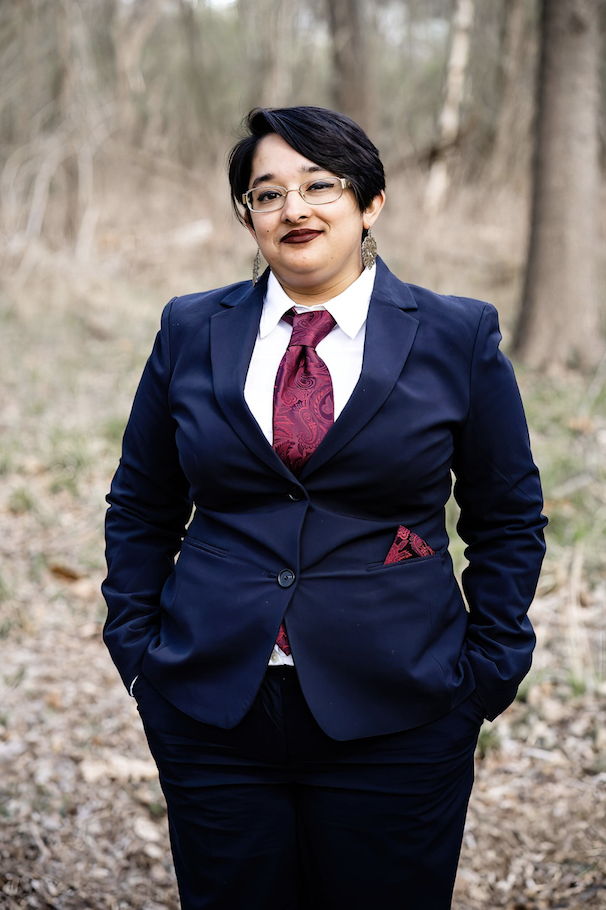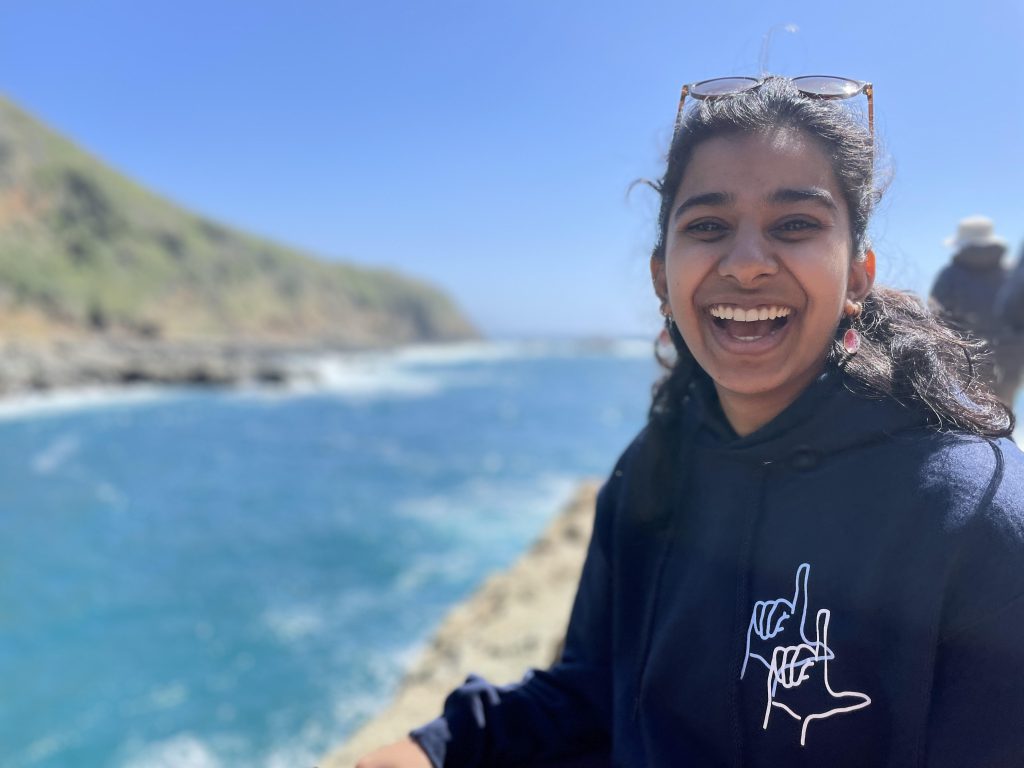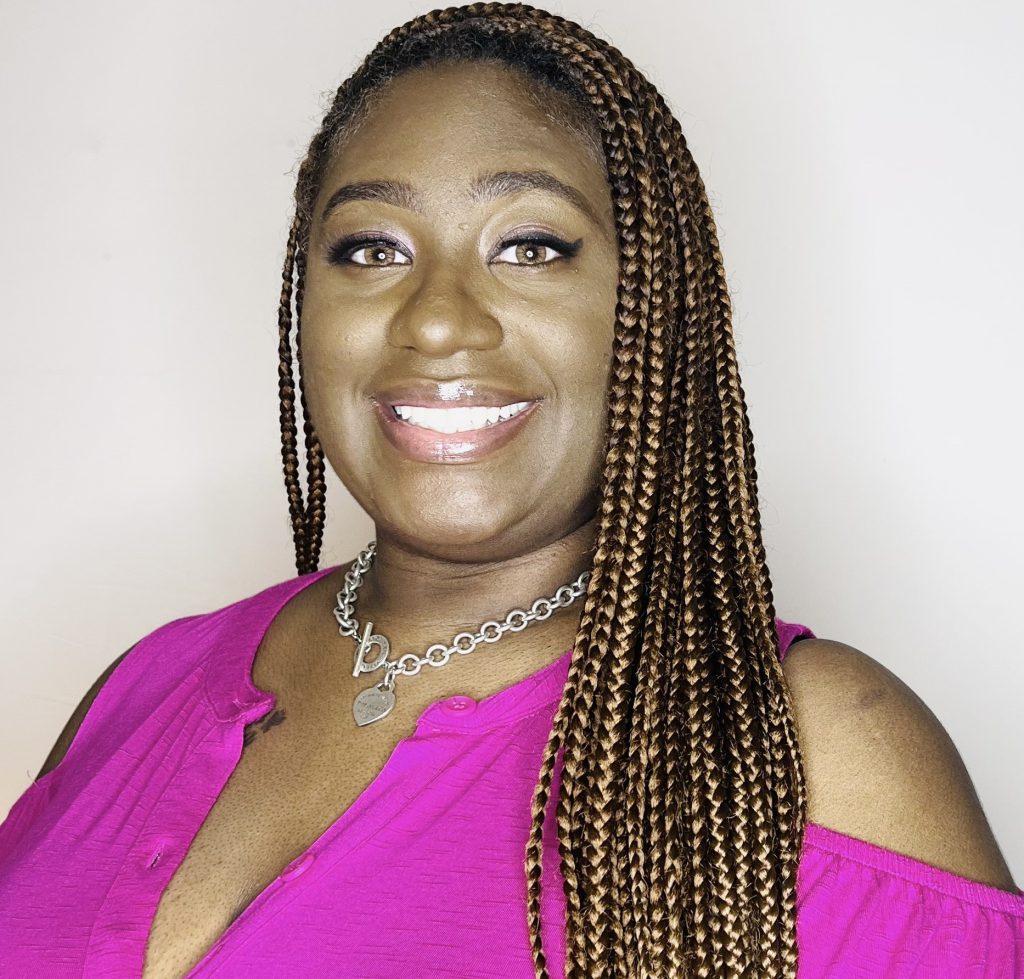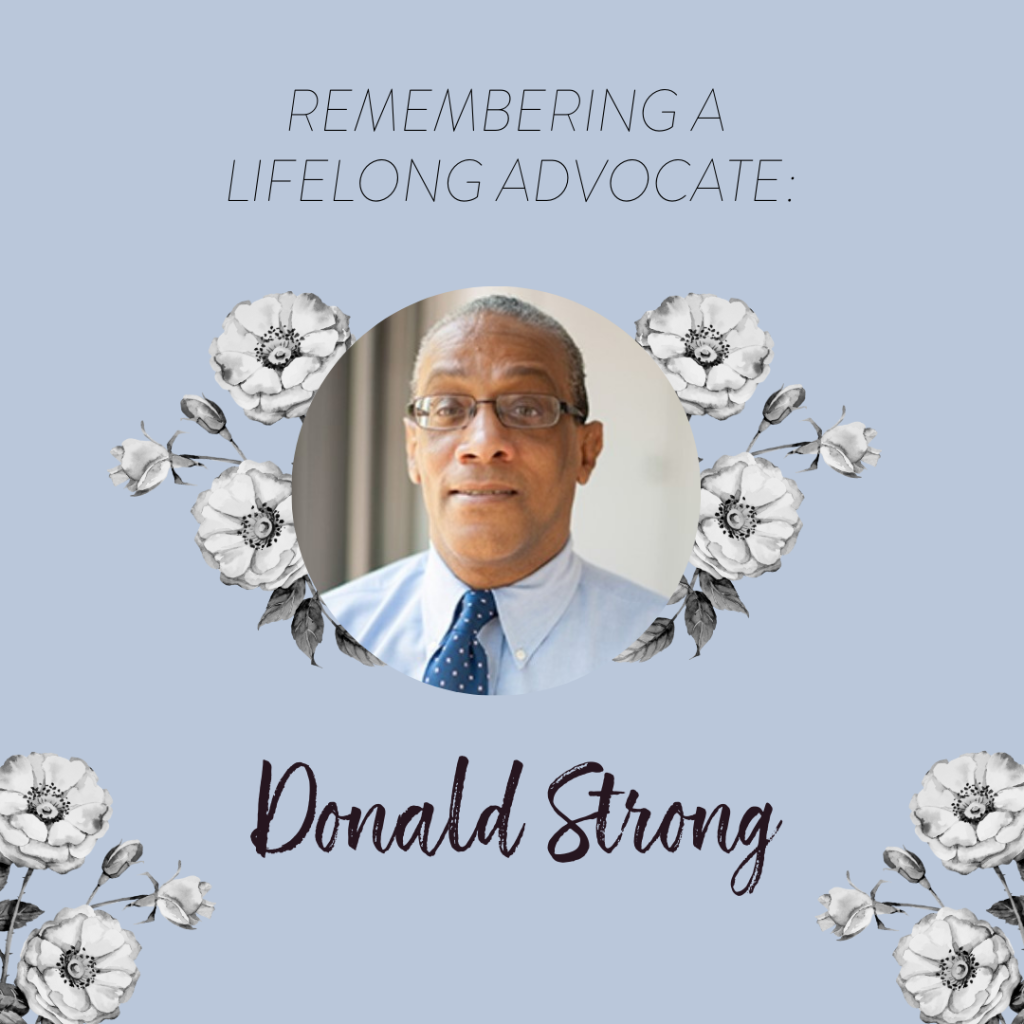Volunteer spotlight: Naquia

Naquia is a Research Associate at Cornell University where she studies public health policy, homelessness, and health inequities. She recently graduated from the University of Michigan with a degree in Public Health and a minor in Spanish. She is passionate about destigmatizing sexual and reproductive health, supporting immigrant and refugee communities, and promoting cultural humility in health care. Naquia will be attending medical school in 2023 and aspires to become an OB/GYN. What was your experience of learning about female genital cutting (FGC) for the first time like? I learned about FGC for the first time when I was taking a gender and health class during my first year at the University of Michigan. When my professor mentioned the name of my own community during the lecture, I was shocked and confused. I later learned that while I was not subjected to the practice, nearly every generation of women in my family was forced to undergo FGC quietly, secretly, and without consent. Learning about FGC and its impact on the people I love and care about has driven me to create a safe space for survivors to share their stories. When and how did you first get involved with Sahiyo? Although I had learned about FGC from an academic perspective as a public health student, I struggled to begin questioning the practice in my own community where talking about women’s bodies was taboo. After graduating from college last year, I wanted to support an organization that centers the experiences of survivors and communities affected by FGC. I learned about Sahiyo from a close friend and decided to apply to become a volunteer. What does your work with Sahiyo involve? I’ve been involved in the Critical Intersections Research Project, which aims to understand the impact of different social oppressions, such as Islamophobia and systemic racism, on the movement to end FGC. I’ve been able to use my background in research to help support this work by interviewing activists and providing qualitative analysis. Connecting with activists and grassroots organizations has greatly expanded my understanding of the broader context of FGC within structural oppression, as well as the complex challenges activists face in ending FGC. How has your involvement with Sahiyo impacted your life? As someone who comes from a community that practices FGC and aims to become a physician who can provide care with cultural humility, my involvement with Sahiyo has significantly impacted my life. For years, I felt alone and discouraged when trying to talk to members of my community about FGC; through Sahiyo, I’ve been able to connect with a supportive network of survivors and allies, learn from the experiences of activists, and gain courage to talk to my family members and other community members with sensitivity. What words of wisdom would you like to share with others who may be interested in supporting Sahiyo and the movement against FGC? Silence is one of the most pervasive challenges in the movement to end FGC, but speaking out can come in many different forms. Whether it means sharing information on social media, having a challenging conversation with a family member, or prioritizing your own mental health, activism and healing will look different for everyone. I am incredibly grateful for Sahiyo in providing me with the guidance and support to become a life-long advocate.
Volunteer spotlight: Umme Kulsoom Arif

Umme Kulsoom Arif is a lawyer, activist, and sometimes writer from Missouri. They received their Bachelor of Science in Justice Systems from Truman State University and their Juris Doctor from Penn State Law in University Park. Despite having been born and raised as a part of the Dawoodi Bohra community, they did not become familiar with FGC until they were nineteen, when they learned that they had a much more personal connection to it than they could have anticipated. Umme volunteers as a writer for Sahiyo after joining the organization while in law school, telling their story and hoping to encourage others to do the same and find healing in speaking out. What was your experience of learning about female genital cutting (FGC) for the first time like? I had some passing understanding of what FGC was thanks to a mention of it by my high school sociology teacher, but I think I truly learned about the gravity of it and how connected I was to it a few years later. I was a sophomore in college and just coming to terms with my sexuality, leading to me coming out to my parents as asexual. That was when my mother told me that my fear of intimacy was intentionally done, and suddenly more than a few childhood memories that didn’t immediately make sense clicked. When and how did you first get involved with Sahiyo? I was in my second year of law school and had been watching the U.S. prosecution case until its devastating conclusion. While researching what advocacy groups were out there to help survivors like myself, in an effort to see if there was something I could do, I came across Sahiyo and — recognizing the name from my own culture — immediately reached out to volunteer. What does your work with Sahiyo involve? Mostly a lot of writing and blog posts! I’m very grateful to have been part of the 2022 Sahiyo Activists Retreat, and to be able to share my perspective as someone part of the LGBTQ+ community, especially as someone who is nonbinary. I’ve focused heavily on the healing side of activism and encouraging survivors to be kind to themselves, even if it isn’t easy. How has your involvement with Sahiyo impacted your life? Growing up as part of the Dawoodi Bohra community, speaking up against FGC has been a very strange and isolating experience. But being part of Sahiyo offered me the opportunity to find and build my own community of survivors and allies who are focused on uplifting each other and embracing our authentic selves. I’m much more comfortable writing about my experiences these days and often look forward to more opportunities to volunteer. It has been an incredible healing journey and I am so grateful to not walk this path alone. What words of wisdom would you like to share with others who may be interested in supporting Sahiyo and the movement against FGC? Come as you are and be yourself. Everyone’s healing journey is different and you do not have to push yourself beyond your limits to join the movement against FGC. Survival is activism too. And know that you do not walk this path alone — we are with you, to speak when you don’t feel able and to listen when you do.
Sahiyo Donor Spotlight: Sarrah Hussain

Sarrah Hussain is currently a senior undergraduate student at Stanford University studying human biology and computer science. Her relationship with Sahiyo began with the Development Team, first as a Development Intern, then transitioning to Development Assistant, and finally, becoming Development Coordinator. For her undergraduate honors thesis, Sarrah is partnering with Sahiyo and Asian’s Women’s Shelter (AWS) to better understand support services for survivors of female genital mutilation/cutting (FGM/C). Why did you decide to donate to Sahiyo and what does it mean to you?I decided to donate to Sahiyo because I believe in their work! As a previous member of the Development Team at Sahiyo, I understand how impactful my donation can be to make Sahiyo’s work possible — I know my donation is truly making a difference to ensure the Sahiyo team can more actively work towards eliminating FGM/C. While an employee of Sahiyo, I feel like I was able to grow as a person and an activist, and I am thrilled that I am able to contribute back to the organization through my donation and my research (you can read more about it here). How did you first become involved with Sahiyo and how has your involvement evolved over time? I first heard about Sahiyo because I was actively looking to get involved with organizations working to eliminate FGM/C. I joined Sahiyo as a Development intern and over the course of about 2 years, I moved into the role of Development Assistant to Development Coordinator. Due to other commitments, I decided to move into a volunteer role over the past year, and am now excited to be working again with Sahiyo in a more active role as an undergraduate researcher working on my honors thesis. Why should others donate to Sahiyo?Others should donate to Sahiyo because their donation will be directly allocated towards efforts to eliminate FGM/C and will make a tangible impact in Sahiyo’s work. Sahiyo and the entire team leading the organization are amazing people—they are the reason I believe in the organization’s work and keep wanting to work with them over and over again!
Volunteer spotlight: Development Intern Shatize Pope

Shatize is a senior working towards her BA at Columbia University in New York. She is majoring in Human Rights with a specialisation in women’s studies and looking forward to attending NYU for law school to specialise in international law with the hopes of one day working for The United Nations Entity for Gender Equality and the Empowerment of Women. Shatize is very passionate about creating a safe space for women and young girls to be able to thrive in what is labelled a man’s world. She has been an advocate fighting for the elimination of female genital cutting (FGC) as it violates the human rights of women. As a mother to a young daughter, she is teaching her to always stand up for what is right no matter the obstacles that await. Shatize is looking forward to working for Sahiyo and educating those unfamiliar with the harm FGC causes millions of women and young girls daily. She strongly believes that we can put a stop to FGC and empower those who have been affected by it. What was your experience of learning about female genital cutting (FGC) for the first time? The first time I learned about female genital cutting (FGC), I was around 10 or 11 years old at a church retreat. There, I made a new friend from Africa who had just come to the United States; she was my age. I asked why she was here in the U.S. without her mom, and she began to explain that her family had sent her away so she didn’t end up like her older sister, who had died from being forced to undergo FGC. When I later asked my mom what FGC was, she told me it was a bad thing bad men do to girls and women. I looked it up for myself and was shocked to learn that a human would do such a thing to another human. From that day, I vowed a life of service to women and girls around the world. When and how did you first get involved with Sahiyo? I am currently studying Human Rights at Columbia University with a concentration in Women’s Studies. I began looking for an internship that focused on protecting women, and that is how I came across Sahiyo; I quickly knew this was the place for me. The work Sahiyo is doing to protect women and girls from FGC is what I have dedicated my life to, and I want to protectas many women and girls from this human rights violation. What does your work with Sahiyo involve? As a development intern, I, along with the other amazing interns, help draft grant proposals and conduct research on funding for the many different outreach programs Sahiyo has to support survivors of FGC. How has your involvement with Sahiyo impacted your life? My involvement with Sahiyo has reassured me that working towards the protection of women’s and girls’ human rights is my purpose in life. I have a daughter, and I want her to grow up in a world that values her, not a world where she is considered less than because of her anatomy. What words of wisdom would you like to share with others who may be interested in supporting Sahiyo and the movement against FGC? Sahiyo is giving a voice to the voiceless while bringing awareness to the harms being committed against women and girls. Supporting Sahiyo will allow a survivor to get help, tell their story, and help stop the practice of FGC. Human Rights are universal, and everyone has the right to protection; Sahiyo is creating a safe space for those who otherwise do not have it.
Bhaiyo Spotlight: Honoring Donald Strong

Sahiyo was saddened to hear of the recent passing of Donald Strong, a true male ally in the work to end female genital mutilation/cutting (FGM/C), whose advocacy provided energy towards propelling the Stop FGM Act of 2020 into law. As Director of Research Coordination and a Practicum Director in the Department of Prevention and Community Health with George Washington University, Mr. Strong worked closely with nonprofit organizations, health departments, and healthcare providers serving the African immigrant community in the DMV, in the work to eliminate the practice of FGM/C. Some of us at Sahiyo were lucky enough to work with him directly on this effort; co-founder Mariya Taher collaborated with Don on the GW Dean’s Seminar Series: Addressing Female Genital Mutilation and Cutting (FGM/C) in the DMV. Sahiyo U.S. Advisory Board Member Maryum Saifee recognizes Don as someone who “really laid the groundwork for GW’s role in becoming a leader in the anti FGM/C advocacy efforts in the United States.” Sahiyo would like to commemorate him through a spotlight with our Bhaiyo initiative (something Don was really excited about), which aims to create a space where male allies can come together to collaborate, spark dialogue, and spread information about this form of gender-based violence and it’s harmful impacts. There is perhaps no one better to commemorate Don than those who knew him best. We’ve asked some of his colleagues, and those who were lucky enough to know him personally, to provide reflections on his legacy. Don Strong, a connector, a cheerleader, a community activist, and confidant. When he walked into any meeting, within five minutes, he made sure everyone knew one another and how we were all connected. I remember we were giving a presentation at the UN about FGM/C, and the storytelling we were engaging in was getting emotionally heavy. Don, sensing the tension, stood up and started engaging with the room. The participants didn’t know one another when they entered the room, but Don was connecting people, connecting lives, and within minutes had the entire room, standing up and sharing their stories. By the end of the session Don had us all exchanging contact information and taking group photos. He was incredibly humble and wouldn’t let us tell people that it was his advocacy, his storytelling that put the Stop FGM ACT of 2020 into action. As one of our community partners stated “It was easy to see that Don was an advocate to his core. His motivation to end FGM/C, and to get men involved in the process, was inspiring and contagious. I know he will be dearly missed by GW, the field, and most of all his family.” Don, my friend, I’m going to miss you. May you rest in peace and may your power be instilled in each of us to continue your mission. -Karen A. McDonnell Don was a colleague, a friend, and an advocate against FGM/C. He worked quietly in support of organizations in the nonprofit community. Don was partly responsible for the relationship GWPF has with George Washington University today. He had called my office in search of information on FGM/C, and we ended up chatting for a while. At the end of our conversation, he invited me to meet with Dr. Karen McDonnell, Dr. Ghada Khan, and him. On a bitterly cold February morning in 2017, I met with Don, Karen, and Ghada for the first time. That meeting was the birth of the current relationship GWPF has with George Washington University. I admired the passion Don possessed for this work. He was passionate about young men becoming involved in the work against FGM/C. He will always be remembered, and most definitely missed. May his soul find rest and peace. -Angela Peabody I met Don a few years ago, and since that day he has inspired me everyday with his immense passion and dedication to ending FGM/C. His ability to foster connections was simply unparalleled. His energy and charisma would light up every room he walked into and liven every conversation he had. Anyone who met him could immediately tell that he was such a radiant and incredible human being. He always cheered me on and I will be forever thankful for his friendship and mentorship through the years. Along with our GW community, and his friends and family, I will miss him so much. But, his legacy will live on. Rest in power, Don. -Krishna Patel I first met Don in 2015 when he and his colleague, Karen McDonnell, were thinking through the process of building a strategy to counter Female Genital Mutilation (FGM) in the US. I remember sharing both my personal story as a survivor, but also my experiences as a policymaker trying to move the needle on addressing the issue globally. I told him how important it was that we focus on FGM — filling the data and research gaps domestically— to have the credibility and moral authority to advocate for the same calls to action with counterparts overseas. I was struck by Don’s kindness during the meeting and over the many years, the strength of his conviction to keep pushing and elevating an issue that is frankly still taboo and squeamish for many to absorb. That took courage and his bravery has made a difference in the lives of so many of us, both in the present moment and future generations, carrying his legacy forward. I am forever grateful to have been blessed with the opportunity to partner and learn from such a powerful advocate for human rights and gender equity. -Maryum Saifee
